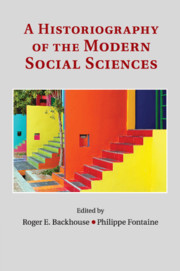5 - History of Psychology since 1945
A North American Review
Published online by Cambridge University Press: 05 September 2014
Summary
To underline the major claim of his 1929 A History of Experimental Psychology, Edwin Boring repeated Hermann Ebbinghaus’s remark, made in 1908, that “psychology has a long past, but only a short history” (Boring 1929, p. vii). Such a comment could warrant appropriation of any of the relevant Western intellectual traditions for the new scientific approach. All of the fields that became new social science disciplines in the late nineteenth century could claim similar intellectual genealogies extending back to Aristotle, which provided not only a useful legacy but also a convenient contrast with their declarations of scientific aspirations. Although their specific histories emphasized different thinkers and ideas, the nascent disciplines needed histories to provide markers of identity and to bolster claims to legitimacy and relevance.
A usable past was constructed by and for psychologists in the midst of their professionalizing project. Emphasizing the breadth and the depth of philosophical thinking about mind since the Greeks and the rise of experimental science, particularly physiology, in the nineteenth century, a narrative of scientific progress was created (e.g., Brett 1912–21). By the late 1920s, competing histories revealed disciplinary fault lines about aims and approaches as the field contended with growth and diversification. “History, with its developmental logic, offered a way to integrate an epistemologically unruly field and an alternate means of defining a disciplinary identity” (Capshew 1999, p. 24). In the United States, where the discipline took root most vigorously, the Great Depression ushered in a decade of academic retrenchment and competition for resources. On the eve of World War II, one psychologist noted that the discipline was facing its “impending dismemberment” along ideological, organizational, and generational lines (Klüver 1949).
Keywords
- Type
- Chapter
- Information
- A Historiography of the Modern Social Sciences , pp. 144 - 182Publisher: Cambridge University PressPrint publication year: 2014
References
- 6
- Cited by



